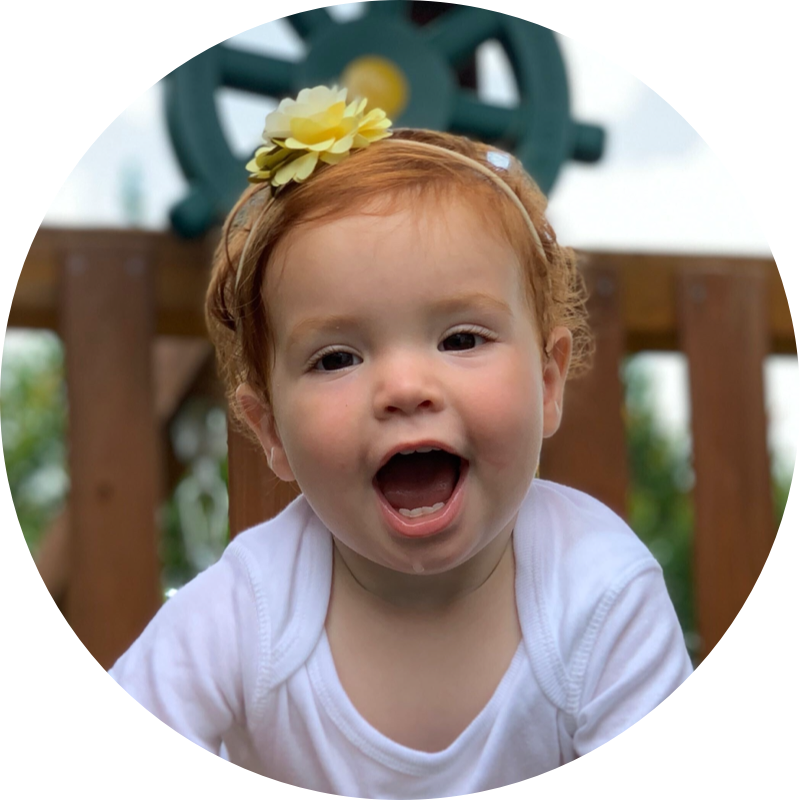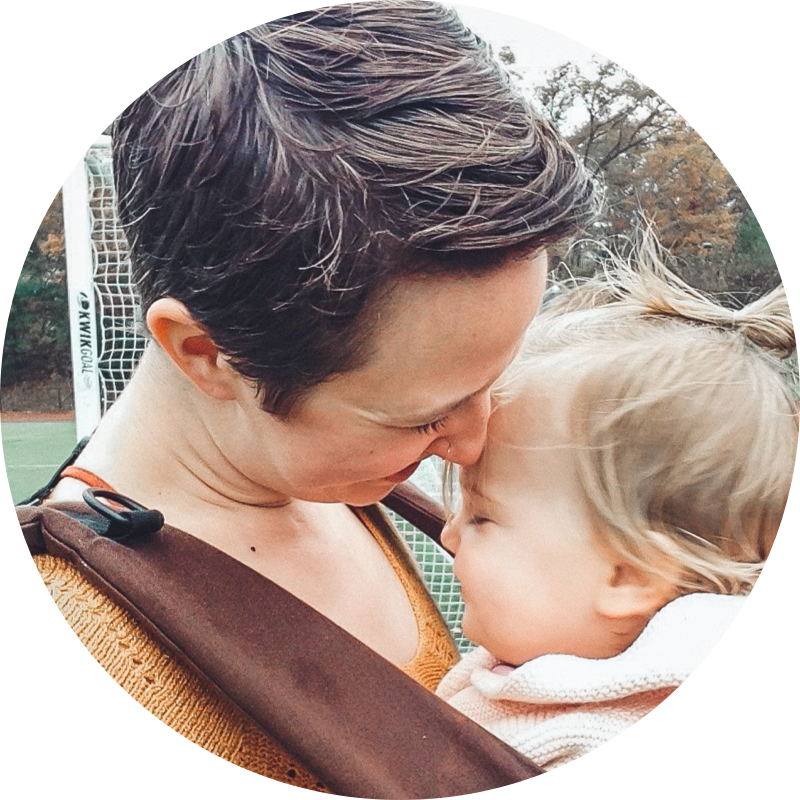Tiny Humans, Big Emotions Course
Raising emotionally intelligent kiddos doesn’t have to be so hard.
All you want is for your child to eat his dinner. You ask nicely. You count, but you don’t put him in time out because you want the family to eat dinner together. You ask again, more firmly. The situation escalates, you begin to yell—and your kiddo spits food everywhere.
You want your daughter to put away her toys before she gets out her art supplies. Soon she’s screaming and kicking, and if you try to calm her, she hits you. She’s only 3, but you worry she’s old enough now that she needs to be able to calm her big emotions and complete basic chores.
People told you parenting would be hard—but should it be this hard?
The real-life parts you don’t see on Instagram can leave parents and kids feeling a sense of insecurity and shame. Maybe you didn’t grow up with parents who set and held boundaries. Maybe your own family of origin prized politeness and stuffed their true feelings deep inside, with only surface-level emotions being allowed. Maybe you were only allowed to be happy and positive.
Boundaries aren’t easy. But they’re really, really important for raising securely attached, emotionally intelligent kiddos. The biggest gift you can give your family is understanding how to emotionally process big feelings, without burying them or having a massive outburst.
Parenting doesn’t have to be this way.

Imagine a different scenario...
You ask your daughter to put her toys away before she pulls out her art supplies. She gets mad. (Friend, that’ll never go away.) But the difference is this time, you don’t yell. She doesn’t hit.
You don’t try to reason with her or scold her for not listening. You don’t get anxious or angry because you know she’s just working on processing an emotion. You let her have her moment to feel her big emotion. And then, that moment passes and you're both able to move into your next activity, a little more calm and a lot less frustrated. Maybe she gives you a hug. Maybe you help her put her toys away.
The art supplies are out and you’re both coloring. The mood is lighter. You're together and your bond is tighter. You know that an outburst is nothing more than an external processing method and she knows you’ll always be there to hold space for her and her feelings.

If this resonates, know that you aren’t alone, and that there are simple ways to add peace and authentic connection to your family life in less than a week. This course will teach you simple ways to soothe yourself so that you can meet your child with confidence, even in the midst of a tantrum or other big emotion, with the grace and patience she deserves.
A stronger connection with your child through a research-based method I co-created
What makes my method different is that it’s rooted in behavioral science and cutting edge research on emotional development. I co-created the CEP method to help kiddos and parents effectively integrate big feelings into a stronger sense of attachment and connection. My course will teach you the difference between sensory and emotional regulation, and why you can’t have one without the other. It also helps adults who maybe didn’t have the best role models in their own families of origin learn tools to keep them from replicating negative coping mechanisms that left them feeling alone, anxious, or misunderstood as children.
My teaching doesn’t aspire to perfection, but rather focuses on real life tools you can use to help you and your child identify, begin to understand, and process their emotions. Most importantly, it’s about helping you and your child build a foundation of trust and learn how to handle the hard stuff. These tools will help you raise emotionally intelligent humans now and into the future.
Let’s help you and your child understand how to process emotions together.
I’ve coached thousands of parents who struggled with the same things you do. I’ve taken that powerful one-on-one work and boiled it down into easy-to-digest modules you can start applying in your own family today. The tools you’ll learn in Tiny Humans, Big Emotions will help you build a sense of groundedness during the hard times and a deeper, more authentic connection with your child so that you’re both able to handle the hard stuff in a way that promotes long-lasting mental health.


Just wanted to let you know that we've made wonderful progress with our kid since the Tiny Humans Big Emotions group call. The tantrums and meltdowns have decreased immensely and I've found him saying things like, "but Mom, I was scared" or "Mom, I'm feeling shy." It is wonderful.
- Anonymous

This workshop has helped tremendously in our house with our 3 year old and 1 year old. Alyssa truly has an abundance of knowledge and so helpful.
- Loren Pennisi

It is never too early building your toolbox! My husband and I attended the first part of this workshop in June when our son was just 1 month old and found it to be incredibly informative and practical. Even though we aren't in the thick of this yet, I've already found myself out loud acknowledging his feelings when he's upset and allowing him to feel them!
- Kate Knipe
Here’s what to expect.
This course includes the tools that I’ve used to help so many parents just like you build stronger and more connected families...
 You’ll learn where your toddler’s rage and outbursts may be coming from, as well as dive deeper into understanding the roots of your own emotional intelligence. By learning the Collaborative Emotion Processing (CEP) method, you’ll gain a better sense of why emotions matter, and how to embrace rather than bury them to create the kind of connection you crave with your kiddo. You’ll also learn the difference between sensory and emotional regulation, and tangible ways to calm yourself first, before engaging with your emotionally turbulent child.
You’ll learn where your toddler’s rage and outbursts may be coming from, as well as dive deeper into understanding the roots of your own emotional intelligence. By learning the Collaborative Emotion Processing (CEP) method, you’ll gain a better sense of why emotions matter, and how to embrace rather than bury them to create the kind of connection you crave with your kiddo. You’ll also learn the difference between sensory and emotional regulation, and tangible ways to calm yourself first, before engaging with your emotionally turbulent child.


 We’ll also cover how to respond to toddler emotions effectively, without yelling, shaming, or burying your true feelings. The power of emotion coaching on the brain is life-changing, and it’s never about perfection. And in case this sounds too lax or touchy-feely to you, rest assured we’ll cover the importance of discipline, consequences, and accountability and give you real-life tools you can implement to get better results from your parenting efforts in less than a week.
We’ll also cover how to respond to toddler emotions effectively, without yelling, shaming, or burying your true feelings. The power of emotion coaching on the brain is life-changing, and it’s never about perfection. And in case this sounds too lax or touchy-feely to you, rest assured we’ll cover the importance of discipline, consequences, and accountability and give you real-life tools you can implement to get better results from your parenting efforts in less than a week.
 This course comes from years of coaching parents on how to effectively meet their young children in the midst of big emotions to build more authentic relationships and secure attachments in their families. We’ll make sure you are set up for success and feel confident about next steps, whether your child is 18 months or 4 and a half. It’s never too early or late to start the CEP method.
This course comes from years of coaching parents on how to effectively meet their young children in the midst of big emotions to build more authentic relationships and secure attachments in their families. We’ll make sure you are set up for success and feel confident about next steps, whether your child is 18 months or 4 and a half. It’s never too early or late to start the CEP method.

The Tiny Humans, Big Emotions course is my one-on-one coaching delivered to you at half the price. Along with the video lessons you’ll get the Tiny Humans, Big Emotions workbook that you can use as you need for years to come.
 Understand your child’s behavior and why it’s happening
Understand your child’s behavior and why it’s happening
 Know how to respond to tantrums/meltdowns
Know how to respond to tantrums/meltdowns
 Build a connection with your child where you are a person they trust to be vulnerable with
Build a connection with your child where you are a person they trust to be vulnerable with
 Help your child learn how to express emotions without hitting/kicking/biting/spitting
Help your child learn how to express emotions without hitting/kicking/biting/spitting
 Support your kiddo’s toolbox for processing emotions, not just burying them
Support your kiddo’s toolbox for processing emotions, not just burying them
 Develop your child’s coping strategies so they have the tools to regulate their central nervous system and respond with intention
Develop your child’s coping strategies so they have the tools to regulate their central nervous system and respond with intention
 Help you set and hold developmentally appropriate boundaries
Help you set and hold developmentally appropriate boundaries

I would 100% recommend this workshop with Alyssa. She gives such valuable information that you can immediately put into action and even if you’ve heard a bit of it from her podcasts and online resources it is so different to hear it in person. Things sink in more and more. I learn more tools every time I hear from her. Can’t wait to head back next week! So grateful to be part of the village she has created!
- Meagan Zdep

Such a fan - I have been using some of the techniques and its amazing to see my son react and process his thoughts, feelings and emotions. I can see the wheels spinning on his head - you are doing an amazing thing!
- Anonymous

And thank you for another lovely evening last night of learning more about toddlerhood and how to best support my son. it has been SO helpful and I come home and just unload everything on to my husband and after that conversation we both feel like a more united team with more tools instead of two folks scrambling in the dark.
- Anonymous

And If You're Not 100% Satisfied... Neither Am I.
If for some reason you are unhappy with the course, rest assured you can access my 30-day money-back guarantee.
Hey there! I'm Alyssa
I’m an emotional development expert, small town Vermonter, podcaster, and someone who saved my own life through the very emotional intelligence skills you’ll learn in this course. For years I stuffed my feelings until I learned to process my emotions again in a healthy way, and I’ve seen the transformative power of this work in the lives of families just like yours. I pinch myself on the daily because I truly believe I have the best job here: sharing with committed parents and caregivers like you the tools that helped me live fully again.

Are we a fit?

Who shouldn't take this course?
Who is this course for?
How old should my child be for this course to be effective?
Can I do this course with my partner or co-parent?
Do I have to be a parent to utilize this course?
Do I get 1:1 on support with this course?
How long will I have access to the course?
Do you approach discipline?
Still undecided?
There’s never been a better moment to invest in your connection with your child. If the past month or two have taught us anything, it’s that life is unpredictable and we all crave the safety and security of belonging to a healthy, connected family. The quarantine experience has brought up big feelings you thought you left behind in your own childhood, and sheltering at home means there is nowhere to hide and limited ways to distract yourself. Now is the time to invest your time and energy into doing this life-changing work that will securely ground your family relationships and increase your emotional intelligence.
Our goal is not obedient children, it's to nurture emotional health.
I hear regularly from folks who feel like punishing a child for "bad" behavior and rewarding them with "good" behavior is how to get a child to listen. I can see the intention that thought comes from. Our goal is not to raise obedient children, it's to raise children who have a safe space to break down complex feelings. Our goal is to help you build a relationship of trust and respect with your child.
Other folks struggle to hold up a mirror rather than a magnifying glass, preferring to criticize and blame others for the way their relationship with a child is playing out. It can be hard to believe that there is always a psychological reason behind behavior, and it’s not just kids being kids or a case of the “threenagers.”
Old wounds can be healed, and we all have them, even if your parents seemed perfect growing up. No one is born to be stagnant, and we all have the potential to learn, grow, heal, and transform.



